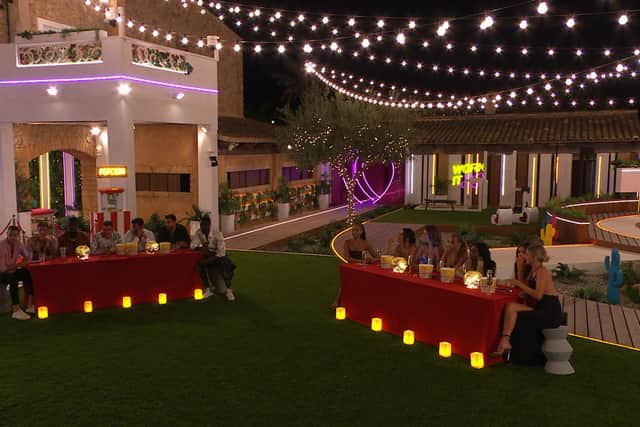‘Controlling behaviour is not love’ - Newcastle Women’s Aid put shows like Love Island under the microscope
and live on Freeview channel 276
The most popular reality TV show right now, ITV2’s Love Island, ended after eight weeks on our screens. The final was watched by 3.4 million people and won by fan favourites Ekin-Su Cülcüloğlu and Davide Sanclimenti.
However, this series had over 1,500 complaints to media regulator OFCOM due to misogynistic behaviour of the male contestants.
Advertisement
Hide AdAdvertisement
Hide AdCertain episodes made for uncomfortable viewing, and it begs the question of how does the show have a place in modern society, given how influential the ‘influencers’ on the show can prove to generations of potentially very impressionable viewers.
Women’s Aid released a statement back in 2018, regarding the behaviour series four contestant Adam Collard. The personal trainer from Newcastle was brought back into the villa for this year’s series, with Women’s Aid releasing another statement, criticising Love Island for their decision.


“Controlling behaviour is not love.”
Elaine Langshaw, CEO of Newcastle Women’s Aid addressed the behaviour of the male contestants as she said: “Controlling behaviour is not love.”
She continued: “Anything that is going to make you change your patterns of behaviour or make you feel awful, then that absolutely needs to be a priority.”
Advertisement
Hide AdAdvertisement
Hide Ad“We need to be on board and on sight to be challenging when people are using controlling behaviours.”
“Love Island is very influential. It has very charismatic characters who are popular with the wide audience. So, if we do want to make those differences in society then let’s talk about it. We need to be calling it out.”
However, behaviours of the contestants are not the only issues that Love Island presents. The islanders themselves have to deal with trolling and abuse online. Twitter users put out many posts encouraging other viewers to consider the mental health of the contestants.
Love Island 2022 saw 1,500 complaints to media regulator OFCOM
Another issue that is constantly spoken about in today’s society is the unrealistic expectations of body image on social media and reality shows such as Love Island, and how that can affect the public. A study by the Mental Health Foundation in 2019, found that 24% of young people said that anxiety about their bodies was fuelled by reality TV. 30% of adults also felt so stressed about body image that they felt unable to cope.
Advertisement
Hide AdAdvertisement
Hide AdThere’s no doubt that Love Island provides viewers with easy to watch entertainment and shows no signs of slowing down any time soon. But the negative impact on the mental health of both the viewers and the contestants themselves needs to be a priority.
Comment Guidelines
National World encourages reader discussion on our stories. User feedback, insights and back-and-forth exchanges add a rich layer of context to reporting. Please review our Community Guidelines before commenting.